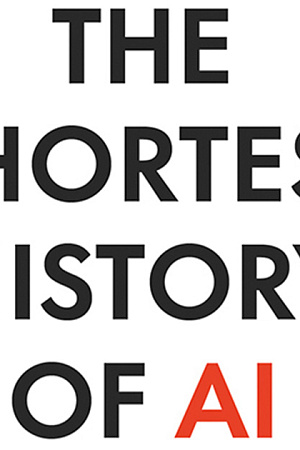Here Be Monsters: Is technology reducing our humanity?
Monash University Publishing, $32.99 pb, 248 pp
‘Uncanny to ourselves’
Back in the day, I was wary about making a career in science. It wasn’t just the lack of women; it was also a sense of moving into alien territory. After all, I had absorbed feminist critiques suggesting that modern science had been shaped by (male) scientists’ urge to ‘penetrate’ nature by reducing it to its parts – an urge that had blinded them to the power of the whole. And I was all for the whole – for Gaia, the whole Earth, not for atom splitting and nuclear bombs. But it was Rachel Carson’s Silent Spring (1962) that offered the most famous argument against reductionism. Carson pointed out that when scientists developed pesticides to kill specific insects, they didn’t take sufficient account of the knock-on effect on the environment, including the starved or poisoned birds whose absent songs would manifest in increasingly silent springs. Half a century on, we are aware of many examples of the damage reductive thinking can do, especially the burning of fossil fuels to produce electricity, changing the whole climate in the process. In Here Be Monsters, Richard King deftly explores another area of concern, which he calls ‘technoscience’, a mix of science, technology, and neoliberal capitalism that reduces everything to its parts – to genes, bits of information, and individual consumers, losing sight of the whole person and their whole community.
Carson’s concern wasn’t pesticides themselves but their indiscriminate and excessive use; similarly, King knows that, like appropriately used pesticides, our digital devices bring us great gifts. But he does want us to understand the neoliberal mindset that led the ‘tech bros’ to build all this stuff in the first place. It was a mindset that led social media developers to exploit our biological reward systems with the shameless aim of monetising our attention, which, he implies, is egregiously ironic given the way that social media distances us from biological contact – from the touch and eye contact we have long assumed fundamental to meaningful human interaction. Many studies show the power of touch and shared conviviality to flood our brains with feel-good hormones, and King notes that we witnessed the reverse of this during the Covid-19 lockdowns. Digital technologies played an important role in keeping us connected through those difficult times, and yet, asks King, ‘Would social media have been invented at all in a society that accorded greater value to physical community life, or one less in thrall to performative individualism?’
Continue reading for only $10 per month. Subscribe and gain full access to Australian Book Review. Already a subscriber? Sign in. If you need assistance, feel free to contact us.












Comment (1)
Leave a comment
If you are an ABR subscriber, you will need to sign in to post a comment.
If you have forgotten your sign in details, or if you receive an error message when trying to submit your comment, please email your comment (and the name of the article to which it relates) to ABR Comments. We will review your comment and, subject to approval, we will post it under your name.
Please note that all comments must be approved by ABR and comply with our Terms & Conditions.